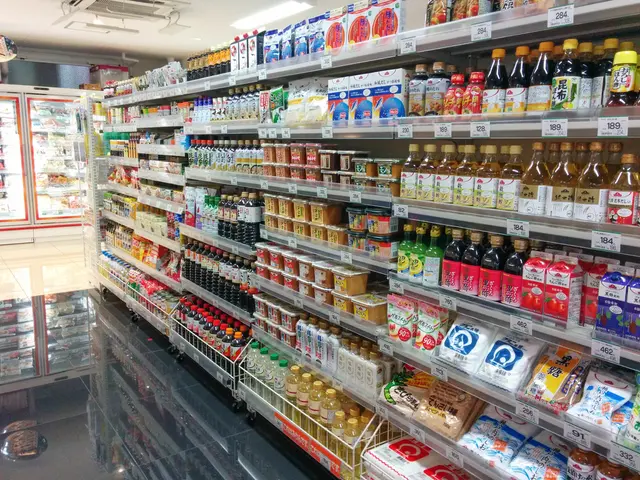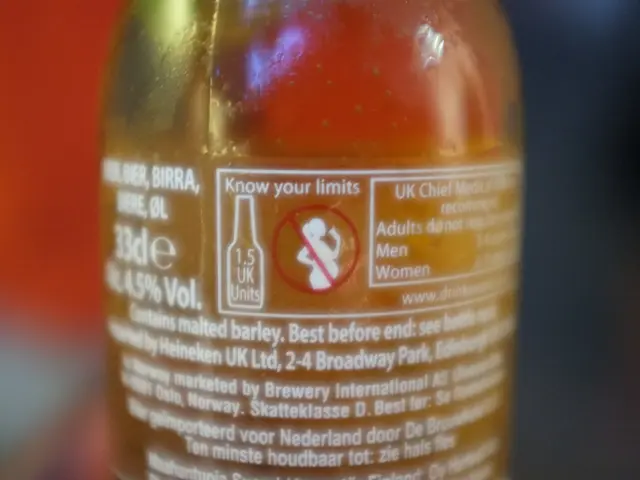Treatment effectiveness for cancer could be hindered by the consumption of sucralose sweeteners, a study suggests.
In a groundbreaking study, researchers have found a potential link between the consumption of the artificial sweetener sucralose and the effectiveness of cancer immunotherapy. The study, published in Cancer Discovery, suggests that high levels of sucralose could adversely affect the response to immunotherapy and survival rates in patients with melanoma or non-small cell lung cancer.
The research indicates that consumption of sucralose may reduce the effectiveness of cancer immunotherapy by altering the gut microbiome and impairing T-cell function. Studies, particularly one led by the University of Pittsburgh and UPMC Hillman Cancer Center, show that both mouse models and human patients with melanoma and non-small cell lung cancer who consumed high sucralose levels had worse responses to immunotherapy and shorter progression-free survival compared to those with low sucralose intake.
Key findings include:
- In mice, sucralose in the diet lessened the anti-tumor effects of anti-PD1 immunotherapy, resulting in bigger tumors and reduced survival.
- Human data analysis of 132 patients revealed that intake above 0.16 mg/kg/day correlated with inferior immunotherapy outcomes.
- The negative effects are tied to changes in the gut microbiota, which in turn impair T-cell function critical for effective immunotherapy response.
- Supplementation with the amino acid arginine restored T cell function and reversed the detrimental impact of sucralose in mouse models, suggesting a potential therapeutic strategy to mitigate these effects without requiring patients to drastically change their diets.
The gut microbiota of sucralose-fed mice showed changes, with greater numbers of gram positive bacteria that degrade arginine, an essential amino acid for T-cell production. While foods high in arginine can be found in diets associated with better immunotherapy responses, supplements may help those who struggle to achieve a high amount from diet alone.
The study aims to help patients currently receiving immunotherapy and give them something they can do to potentially improve their overall care. The researchers hope to investigate whether other non-nutritive sweeteners have similar effects to sucralose on immunotherapy. The findings of the study were significant and could have immediate positive impacts on cancer patients receiving immunotherapy.
Sucralose is one of six non-sugar sweeteners used in the food and drinks industry. It is up to 650 times sweeter than sucrose and contains no accessible energy. The study used a weight-normalized average daily intake of mg/kg/day to calculate each patient's non-nutritive sugar (NNS) intake.
CD8+ T-cells, which produce the most powerful anti-cancer response, had reduced function in sucralose-fed mice. The study found that sucralose changes the gut microbiota, leading to bacteria degrading the amino acid arginine needed by immune cells to destroy cancer cells. The researchers suggest that arginine supplementation could potentially fix the problem of sucralose's adverse effects on cancer immunotherapy.
Mice fed sucralose were resistant to immunotherapy, had significantly increased tumor growth, less infiltration, and were more likely to die. The study was considered high-quality evidence suggesting that sucralose's adverse effects on cancer immunotherapy need further exploration. The researchers are hopeful that their findings will lead to improved outcomes for cancer patients undergoing immunotherapy.
- The study published in Cancer Discovery proposes that a high consumption of the artificial sweetener sucralose could adversely affect the response to cancer immunotherapy and survival rates in patients with melanoma or non-small cell lung cancer.
- The research indicates that consumption of sucralose may reduce the effectiveness of cancer immunotherapy by altering the gut microbiome and impairing T-cell function, which are critical for effective immunotherapy response.
- The gut microbiota of sucralose-fed mice showed changes, with greater numbers of gram positive bacteria that degrade arginine, an essential amino acid for T-cell production, suggesting that arginine supplementation could potentially fix the problem of sucralose's adverse effects on cancer immunotherapy.
- The findings of the study could have immediate positive impacts on cancer patients receiving immunotherapy, as the researchers aim to investigate whether other non-nutritive sweeteners have similar effects to sucralose on immunotherapy.
- While foods high in arginine can be found in diets associated with better immunotherapy responses, supplements may help those who struggle to achieve a high amount from diet alone, contributing to health-and-wellness and manageable medical-conditions such as cancer.




